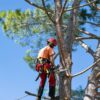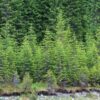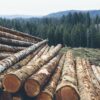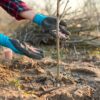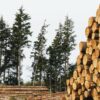Monthly Report - June 2024
The indicator arrows have continued to move slightly to the positive in China with daily sales volume levels ahead of expectation. Inventory is dropping and sales prices for Kiwi logs firming slightly. None of this has meant great change in wharf gate prices NZ in June. As a consequence, production across our plantation estate remains subdued with many loggers and trucks parked up.
I have stated in the past how NZ dominates the China softwood log market but I still hear criticisms of how some believe China plays with us including gearing prices to manipulate supply. Let me assure you, it is NZ in the driving seat.
Importantly the eastern seaboard of China comprises a plethora of traders of all size and scale. Some own several sawmills and or remanufacturing plants, as well as trade logs, some just trade logs. The market is hugely dynamic with a great vying for position on price and volume. Many companies have been very successful and run multi-billion dollar enterprises, many rise and fall badly, casualties are common place.
“The market” is a multi-faceted place where everyone is on the phone taking the talk and getting market intel. No single company is in charge and despite what some would prefer to believe, there are certainly no Government officials behind the scenes manipulating market actions and reactions.
It is NZ exporters who control the price in China and when they inappropriately push too hard, sawmill owners react by closing the door when the Kiwi sellers want more for the logs than can be generated in sales. I believe this is called Supply Demand 101 in the learning almanacs. We have seen much too often where some Kiwi exporters appear not to understand that dynamic and should really have read the book.
To further emphasise NZ supply dominance, here is a snapshot of the softwood log sector in China as mid-June 2024.
Firstly, daily usage numbers in cubic metres. The top 5 supply countries with the species listed, the most dominant in a large mixture:
- New Zealand, Radiata pine; 65,000
- Pacific North West, Hemlock; 6,000
- Japan, Sugi; 3,500
- Australia, Radiata pine; 1,500
- South Africa, Slash pine; 150
NZ Radiata pine is currently running at 85% of softwood daily log usage.
Secondly the inventory. This is the volume of logs sitting on ports waiting for a home, again, as at mid-June, in cubic metres:
- New Zealand, 3.0mil
- Pacific North West, 375,000
- Japan, 160,000
- Australia, 100,000
- South Africa, 10,000
NZ Radiata pine is 82% of the softwood log inventory.
Economic activity across China remains subdued and the market mood generally negative. The current consumption levels confirm reasonable levels of constructing and manufacturing activity, with domestic prices stable to slightly weak across key Provinces.
All of this tells us it will be very dangerous to push up on log prices whilst activity is best described as fragile. If Kiwis exporters behave themselves, the fundamentals going into Q3 should remain stable. Thus, the word “if” will likely determine our near-term ability to get back to work.
At current CFR levels hovering close to US$120 per m3 A grade basis, this is actually a pretty good level based on the recent past. For NZ exporters, the current net back to NZ wharf gate price is all about shipping. At current shipping cost levels north of US$40 per cubic metre we are paying US$10+ too much.
The US$10 represents NZ$15 – $16 at wharf gate at current FOREX rates and that would be enough to get many of our people back working. Good to see in the last week a very slight drop in shipping rates, hopefully signalling that element has turned a corner.
For those of us fortunate to have great relationships with domestic sawmill owners, prices points remain largely unchanged. Price levels are good and demand is stable. This is keeping many loggers and truckers in business, albeit at reduced production levels. This proves as I have said many times before, our domestic market is the backbone of everything else we do.
As always, please remember the thoroughly important message, “despite the challenges, it remains, as always, fundamentally important, the only way forward for climate, country and the planet, is to get out there and plant more trees”!
Allan Laurie.
Laurie Forestry.


